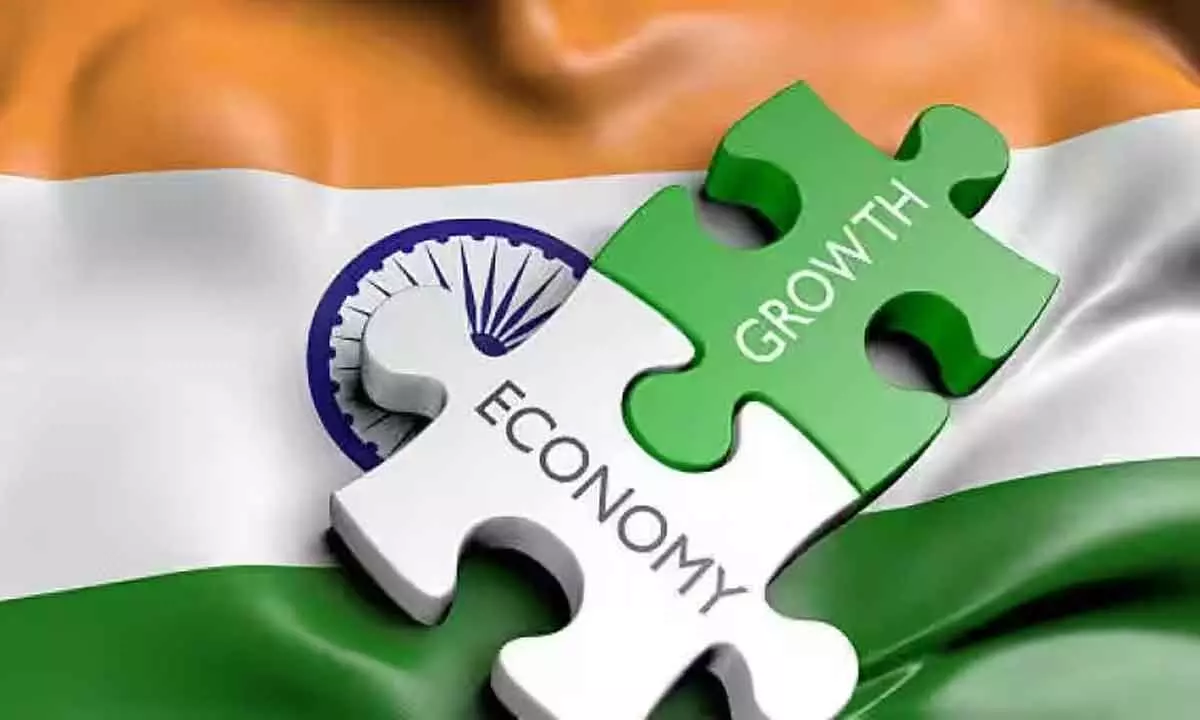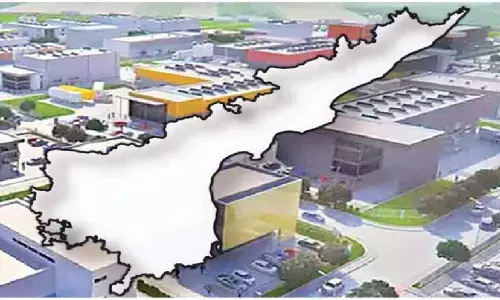RBI lists 6 factors powering India’s take-off to become world’s 3rd largest economy
Share :

While India’s recent growth performance has surprised many, triggering a flurry of upgrades from financial institutions such as the IMF, the RBI bulletin released on Tuesday cites six factors that will propel the country to become the world’s third-largest economy.
Mumbai: While India’s recent growth performance has surprised many, triggering a flurry of upgrades from financial institutions such as the IMF, the RBI bulletin released on Tuesday cites six factors that will propel the country to become the world’s third-largest economy.
In purchasing power parity (PPP) terms, the Indian economy is already the third largest in the world. According to the OECD’s December 2023 update, India will overtake the US by 2045 in PPP terms to become the world’s second-largest economy, the RBI bulletin points out.
According to the bulletin, the “tailwinds likely to power India’s take-off” are as follows:
* The demographics favour the rising profile of growth. Currently, India has the world’s largest and youngest population. The median age is around 28 years; not until the mid-2050s will aging set in. Thus, India will enjoy a demographic dividend window of more than three decades, driven by rising working-age population rates and labour force participation rate. This is a striking contrast to a world widely confronted with the challenge of aging.
* India’s growth performance has been historically anchored by domestic resources, with foreign savings playing a minor and supplementary role. This is also reflected in the current account deficit (CAD), which remains within a sustainable threshold of about 2.5 per cent of the GDP. Currently, the CAD averages about 1 per cent, and this is associated with various indicators of external sector resilience – illustratively, external debt is below 20 per cent of the GDP and net international investment liabilities are below 12 per cent.
* The gradualistic path of fiscal consolidation adopted after the Covid pandemic has brought the general government deficit to 8.6 per cent of the GDP and public debt to 81.6 per cent of the GDP by March 2024. Employing a dynamic stochastic general equilibrium (DSGE) model, it is estimated that reprioritising fiscal spending by targeting productive employment-generating sectors, embracing transition, and investing in digitalisation could lead to a decline in general government debt to 73.4 per cent of the GDP by 2030-31.
In contrast, the debt-GDP ratio is projected by the IMF to rise to 116.3 per cent in 2028 for advanced economies and to 75.4 per cent for emerging and middle-income countries.
* India’s financial sector is predominantly bank-based. In 2015-2016, the overhang of asset impairment in the wake of the global financial crisis was addressed through an asset quality review (AQR). A massive recapitalisation was undertaken during 2017-2022. The beneficial effects started to show up from 2018 -- gross and net non-performing assets ratios declined to 3.9 per cent and 1 per cent, respectively, by March 2023, with large capital buffers and liquidity coverage ratios well above 100 per cent.
The Insolvency and Bankruptcy Code (IBC) has created the institutional environment for addressing stress in banks’ balance sheets. Macroeconomic and financial stability are providing the foundation for medium-term growth prospects.
* India is undergoing a transformative change leveraged on technology. The trinity of JAM – Jan Dhan (basic no-frills accounts); Aadhaar (universal unique identification); and Mobile phone connections -- is expanding the ambit of formal finance, boosting tech startups, and enabling the targeting of direct benefit transfers. India’s Unified Payments’ Interface (UPI), an open-ended system that powers multiple bank accounts into a single mobile application of any participating bank, is propelling inter-bank, peer-topeer, and person-to-merchant transactions seamlessly.
* inflation in India is moderating after surging on multiple and overlapping supply shocks from the pandemic, weather-induced food price spikes, supply chain disruptions and global commodity price pressures following the Russia-Ukraine conflict.
















